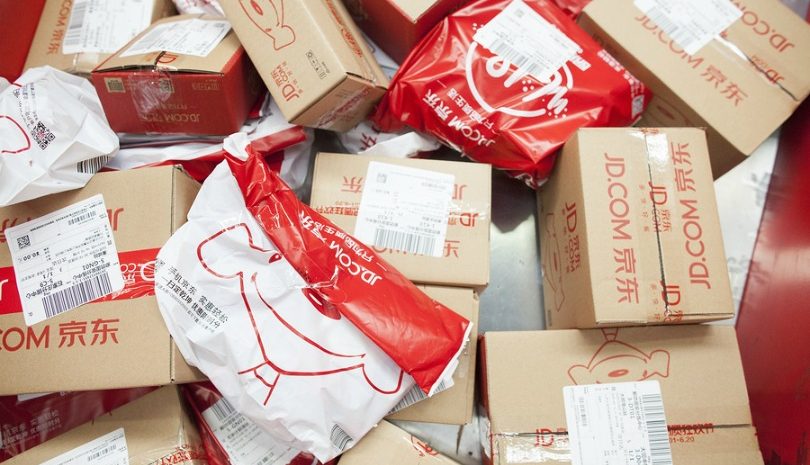JD.com officially launches Aussie office

JD.com’s president of international Winston Cheng says he prefers an organic approach to new markets but has not ruled out considering a local acquisition to supercharge its expansion into Australia.
Speaking at the official launch of JD’s Australian office in Melbourne on Tuesday, Cheng said that a lean business development team would begin increasing the Chinese e-commerce giant’s exposure Down Under in the coming months, particularly in the fast-moving-consumer-goods (FMCG) sector.
But as the business looks to make-up time on competitor Alibaba, which launched an Australian office last year, Cheng said that he’s open to ideas when asked about acquisitions.
“Generally, we have not to date bought market entry by acquisition,” he said. “[But] we’re always open to ideas not only in Australia but across markets if that’s what we decided would be right for us to do.”
Last September JD.com entered into a $500 million joint-venture with Thai retailer Central Group to boost its presence in Southeast Asia, an area of increasing focus for Cheng as he charts the company’s increasingly global ambitions.
Together with recent launches in Paris, expansion in the US and investment taking place in organic expansion through Indonesia and Hong Kong, Cheng said that JD’s goals stretch beyond mainland China.
“We have a global cross border business today both on inbound business into China and on an outbound basis,” Cheng said.
JD.com’s Australian launch represents a step-forward in the options for Australian businesses looking to expand into the Chinese market which will likely elevate competition between China’s e-commerce businesses.
JD operates two main websites, stocking a wide range of products from clothing to appliances. A larger, more established site is geared towards multinational brands, while a newer cross-border platform targets overseas sellers.
The business combines a traditional retail and marketplace model, with some items coming from JD.com and others coming from third-party sellers.
Cheng said JD.com would not be pursuing exclusive wholesale partnerships with Australian businesses that would exclude them from selling via Alibaba or exporting via another channel but remains confident JD’s unique customer and fulfilment model will prove compelling for partners.
“We never ask for exclusivity, we don’t believe it’s good for brands,” Cheng said.
“We offer a differentiated customer base and experience, our AOV [average order value] is six-times higher than some of our competitors.
“It’s a higher value customer base that seeks authenticity of product,” he continued.
JD.com has more than 266 million customers, which Victorian Minister for Trade & Investment Phillip Dalidakis pointed out today was more than ten-times the population of Australia.
“The world today is much smaller than it’s ever been, our online platforms around the world have assured that connection is affording us an opportunity that’s never been seen before,” Dalidakis said.
“It gives our businesses an opportunity not just to survive, but to thrive in international markets.”
Cheng also highlighted JD’s delivery capabilities, with 95 per cent of orders fulfilled within 24 hours of purchase in China.
Although one of JD’s primary point of differences with Alibaba is its partnership with Tencent’s WeChat platform, which was struck in 2014 and provides it with an exclusive portal into the social-network’s nearly 1 billion active users.
Cheng said the usual suspects would be an immediate focus for JD, including maternal care products like baby formula, but he also said healthcare products would be on the agenda for local buyers.
“Australian [expansion] really shows the fortune of this market for us, Australian products are top five in terms of countries on our platforms.”
Comment Manually
You must be logged in to post a comment.

No comments